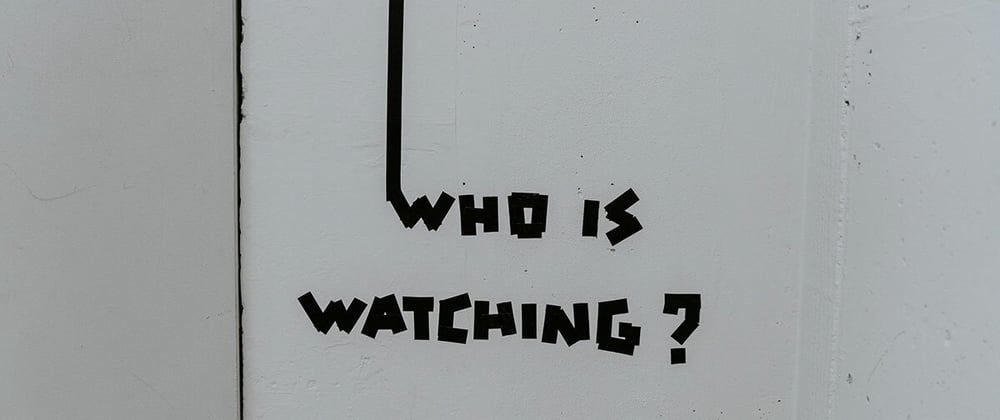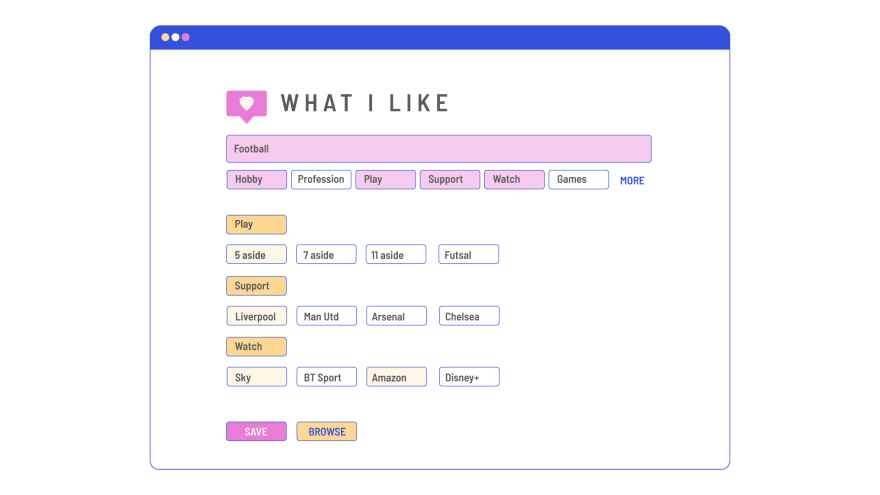Data privacy is essential and you should be your own data protection authority. What do I mean by this? Well, it's about control, setting your own privacy regardless of who’s trying to harvest your organs, sorry, data.
People, in general, are more conscious about their data privacy than ever. This is shown by overlords such as Apple enhancing their data privacy features to win ever more fanboys/girls. Google is planning to phase out THIRD-PARTY cookies by 2024 too so no more snooping from those evil third parties, just Google, who are not evil are they? Whether this happens or not is still a little in the air as they moved the original 2022 deadline back. Either way, it’s a moot point - I’ll explain why once I’ve exhausted all the complaints about the current way of working.
New data privacy rules are just annoying
When GDPR came into force a few years ago, it was as annoying as hell. We all received 500 emails from companies we may or may not have shopped at, given our email address to, or maybe having been nefariously added to their mailing lists. Who wants to receive 500 boilerplate emails informing you about their GDPR policy? Not me! Now when visiting a website you’re first greeted by a cookie warning forcing you to click on something. Arrggghhh! I just want to get to what I was looking for. Let’s not even start on the notifications pop-up - rule of thumb, if you ask me if I want to receive notifications for your website, it’s goodbye from me.
Data collection and usage have been framed around providing you with a tailored service. See ads that are relevant to you, product recommendations, restaurant choices, etc. I might look at a new armchair once, but that doesn’t mean I’m interested in armchairs for eternity.
Relying on algorithms and big data to determine your likes and dislikes isn’t a great way for your data to be used. You won’t get the tailored service that is promised to you. For that, I need to be explicit, and if I want suggestions, I want to set the rules as to what they are.
The way we do data privacy is wrong. We need the ability to set our own rules for privacy. We need to be our own data protection authority.
How to be your own data protection authority?
Let me first start with the disclaimers, this is purely hypothetical, we would need:
- Someone to build it
- User adoption
- Business adoption
- Perhaps even legislation to dampen some of the big tech powers
Some big hurdles one might say. But as John Lennon once sang, “I’m a dreamer, I’m not the only one.”
So let’s go through the list and start with the build.
Build it with a personal knowledge graph
Personal knowledge graphs are an area of expansion for graph databases. They’re being used by people to organize their lives. Down with the kitchen noticeboard, up with tech.
A personal knowledge graph allows you to take your cognitive thought processes and map them in a data format that represents you. Many of these services act like note-taking apps that connect your ideas, thoughts, likes, and anything else connected with you. For a succinct 10-minute overview, check out this excellent video from Ashleigh Faith.
Personal Knowledge Graphs in 10 minutes
To cut a long story short, I’m thinking that the personal knowledge graph replaces the centralized power-hungry graphs of Google, Facebook, and those other mega-beasts that dominate the IT landscape.
Turning to a decentralized (yes, I’m getting my buzz words in) way of sharing data to benefit all. Helping to spread the wealth and give an equal playing field to all.
Say, for example, the graph below. I’ve jotted out a rough knowledge graph for myself, embellishing it heavily to make myself seem far more interesting than I am:
I would then want to be able to:
- Make parts of my graph public, and parts private
- Establish rules - suggest similar things in specific areas of my graph - for example, I might like Puma football boots, but I’m open to other brands
- Exclude brands, topics, and people from my viewing - i.e. no Rupert Murdoch media companies
- Make sections of my graph available to other users/companies
- Connect to other people’s personal knowledge graph - friends with, parent of, child of etc.
An important factor here is to be able to turn access to my graph off, or make it only available when I’m searching for things. For example, before the Christmas season, I want to connect to my Dad’s personal knowledge graph and use it to search for presents he’ll actually enjoy. Once that shopping is done, I don’t want retailers to have access to this information anymore.
Supporting local independent businesses would be easier too - you could create a section of your graph focused purely on local businesses, events, community things, anything around you that you’re interested in. Heck, you could even take it further and say you’re hosting a community event, you could create a graph with content and make it public for all to see - as you can see, the ideas keep flowing, so this article might be a little disjointed!
I’ve given most of the examples around consumerism, I guess that’s capitalism for you, it’s how we think. However, the uses for your personal knowledge graph go beyond buying trinkets. What about copying your doctor’s knowledge graph about your ailments over time, you could then see any doctor, pharmacy, or hospital and they’d be able to see your medical history and provide bespoke care to your needs.
How about hobbies? Perhaps you want to get into something new? Maybe your friends have given you access to sections of their knowledge graphs, you could see what hobbies your friends are into and find out more information to see if anything tickles your fancy. You could, of course, talk to them, but who wants to do that? Perhaps you want a bit of big data help - you could then say, show me other hobbies that people with similar interests to me have for inspiration - you never know, you could be performing on stage with your newly acquired ukulele in no time!
User adoption
What are the chances of users adopting a personal knowledge graph to be their own data guardians? In short, I don’t know, if I did, I’d be on my yacht in the Caribbean somewhere, however, there are signs that people are tired of how things are being done:
- Increased usage of ad and tracking blockers - Yes, you tech folk are early adopters as usual, but more and more mainstream use will follow.
- Big tech using data privacy as a marketing vehicle - As discussed, Apple made a big thing about their enhanced security features, much to the annoyance of marketing folk around the world. This goes to show that focus groups have been big on data privacy.
- The rise of Web3 - Don’t worry, this article isn’t an excuse to peddle Bitcoin. But Web3 is gaining popularity and its ‘virtues’ are focused on decentralization and security.
- Media coverage and Google Trends - There are more searches relating to data privacy now and it’s a growing trend. People are concerned about it.
A good viable personal knowledge graph, in my humble opinion, could have traction IF (notice the big if):
- It is intuitive and easy to build - i.e. it’s not called a knowledge graph, it doesn’t use any knowledge graph language, and is so easy a 5-year-old could use it. Here’s a mockup of how I’d like it (this was done quickly so please don’t be too harsh on my artistic capabilities)
- Clear and easy-to-use privacy and sharing options - Make it easy for people to establish their rules in their own language. Make use of natural language search to let users build their rules their way, for example, ‘give Oxfam access to my shopping habits’.
- The ability to make use of existing website and app schemas to provide relevant information to people in the early days before all companies comply with the new way to do personalized marketing.
- Secure, secure, secure - Is anything 100 percent secure? Probably not, but making sure it’s cryptographically sealed would help protect people’s data.
I envisage, i-Like (that’s the name I’m going for - it was rushed!), to be a replacement for the search engine. Rather than using Ask Jeeves (is that still a thing?), open up i-Like and see what’s there. Alternatively, extend your graph or indeed make private temporary ones and find the information you want.
Business adoption
If users adopt i-Like, so will business. It’s as simple as that. Businesses want a way to connect with customers. SEO, PPC, and social media are expensive and time consuming. The ability to market to customers to say, ‘add me to your liked brands to see x y z, or receive x% off your first order would be a massive pull.
Would it be too much work for them? There would be a lot of work, but it’s not insurmountable. Adding detailed schemas and perhaps a data catalog layer for i-Like to read a top level view of the connected structure of their online offerings.
It would be beneficial - only, however, if there is user adoption.
Legislation
GDPR is a good example of how legislation is shaping the way businesses collect and use personal data and the EU is probably the most likely governing body in the west to impose stricter privacy policies such as banning cookies. I cannot see the US following suit due to the political might and financial power of FAANG or MAMAA or whatever term is used these days!
However, it would only take one region, say the EU for example, to get businesses to think of other ways to understand their customers using digital means.
Conclusion
Okay, so this whole piece is a bit of a what if. But, I do think there is a lot of merit in this approach. There would be a great deal of opposition to it, mainly from big tech.
What would also start as an alternative to the influence of these big tech giants could also create a monopoly of power. Those who ran i-Like would have all of the knowledge and could then exploit it for their own gains. Out of the frying pan, into the fire so to speak.
Ultimately if i-Like were to succeed, it would need to be driven by an ethical organization whose focus moves past the economic benefits. Such examples are not that common, but Patagonia recently showed that not all businesses are cut throat monsters. Perhaps an open-source project might be the way to go?
What do you think? Is this a stupid idea? Would it work? Would Google just come and buy it before it becomes too much of a threat?
I don’t know, I really like the idea, but maybe the initial setup would act as a barrier, too much work needed. Would an automated build of the initial graph help overcome the setup headache? Would that then lessen the effectiveness of the service? Food for thought anyway.
Thanks for reading.









Oldest comments (0)